June 16, 2025 | 14:42 GMT +7
June 16, 2025 | 14:42 GMT +7
Hotline: 0913.378.918
June 16, 2025 | 14:42 GMT +7
Hotline: 0913.378.918
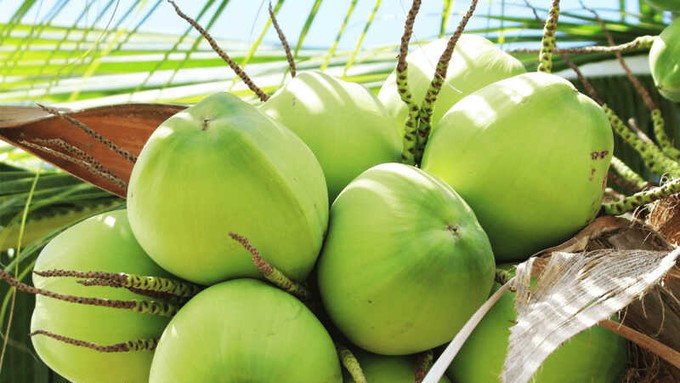
Vietnam's fresh coconut is facing many opportunities for official-quota exports to the Chinese market.
On July 21, the Plant Protection Department (PPD) sent a document to the Departments of Agriculture and Rural Development of provinces and cities on preparation for field inspection of fresh coconut growing areas and packing facilities with demand for export to the Chinese market.
PPD said that it has received a notice from the General Administration of Customs of China (GACC) proposing to conduct a field inspection of fresh coconut growing areas and packing facilities with demand for export. This inspection aims to complete the assessment of pest risk analysis for fresh coconuts and serve as a basis for the signing of the protocol. To be more specific:
- Time and form of GACC’s inspection: The time of inspection is mid-August 2023. The inspection form is an online form combined with field and document inspections.
- Main contents of GACC's inspection: System of control and prevention of harmful organisms on coconut at growing areas and packing facilities; process of harvesting, transporting, and packaging coconut for export.
In order to well prepare the field inspection contents for fresh coconut growing areas and packing facilities with demand for export according to GACC’s requirements, PPD proposes the Departments of Agriculture and Rural Development of provinces and cities to coordinate in implementing some of the following contents:
- Direct the locality’s Sub-Department of Crop Production and Plant Protection or specialized agency to arrange available resources to coordinate with PPD in the process of implementing the inspection; send technical staff to guide and support fresh coconut growing areas and packing facilities on participation in the online inspection as required by GACC. At the same time, prepare dossiers and technical documents related to the management and prevention of harmful organisms as required by GACC.
- Review and synthesize fresh coconut growing areas and packing facilities with the demand for registering for export to China. Inform and guide growing areas and packing facilities in completing dossiers and relevant documents and preparing all conditions to participate in an online inspection as required by GACC.
- All dossiers and technical documents of the Sub-Department of Crop Production and Plant Protection and fresh coconut growing areas and packing facilities must be translated into English or Chinese and sent to PPD before August 5, 2023, to be summarized and sent to GACC.
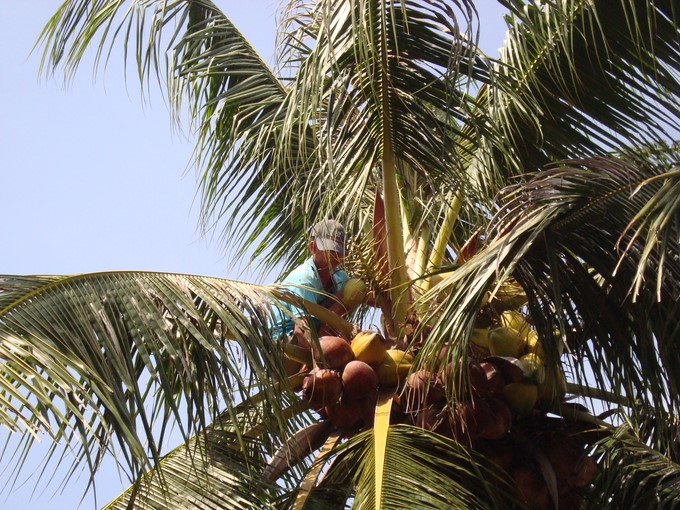
Coconut is a Vietnam's crop with many advantages.
PPD proposes that the Departments of Agriculture and Rural Development of provinces and cities coordinate to implement those contents so that the GACC’s online inspection of fresh coconut growing areas and packing facilities can be conducted smoothly and achieve good results. During the implementation process, if you have any problems or need more detailed instructions, please immediately inform PPD’s Department of International Cooperation and Communication via email at htqt.bvtv@mard.gov.vn for timely resolution.
The plan’s purpose is to complete the risk analysis and promote the signing of the protocol to export Vietnam’s coconuts to China safely.
The plan’s main contents include:
- Establishing a joint expert group of the two countries, including representatives of GACC, the Embassy of China in Vietnam, and Vietnam’s phytosanitary agency, to conduct the inspection.
- Inspection forms: Online inspection, field investigation in Vietnam, and document inspection provided by the Vietnamese side.
- The inspection contents focus on:
+ Vietnam's control system of harmful organisms on coconut: Pest control measures, registration process for export growing gardens and packing facilities, pest training and monitoring, etc.
+ Pest prevention of export enterprises: Arrangement of growing gardens, measures to prevent pests, use of pesticides, training of staff, etc.
+ Process of harvesting, transporting, and packing coconut for export.
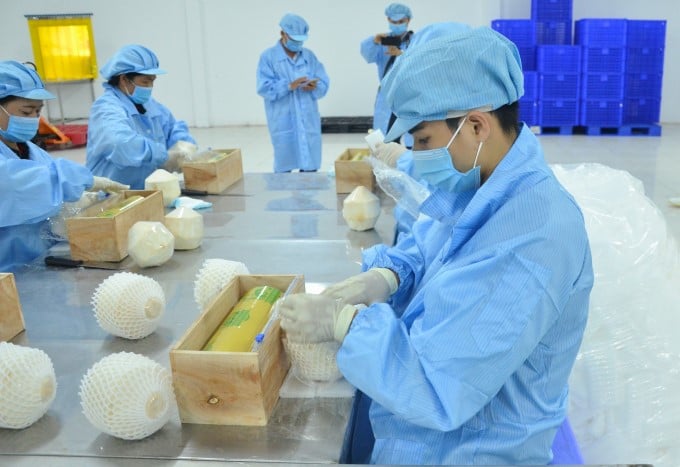
Official-quota exports to the Chinese market will open up great opportunities for Vietnamese coconuts.
- Proposing Vietnam to prepare documents and videos on the process of coconut production, pest prevention, and packaging.
- After the inspection, China will carry out a risk assessment process and propose appropriate import requirements to develop a protocol for importing coconuts from Vietnam.
- Requirements for the preparation of both parties before conducting the inspection:
+ Discuss and agree on a specific inspection schedule, a list of inspectors, and related preparatory work.
+ Vietnam fully prepares supporting documents and videos for the Chinese expert team.
+ Vietnam prepares the necessary tools and equipment for inspection.
+ Vietnam arranges for available personnel to coordinate the inspection when the Chinese expert team requests it.
- After the inspection results are available, if deficiencies are detected, Vietnam should correct and supplement them as soon as possible.
- China will officially notify Vietnam of the inspection results, complete the risk assessment report, and propose appropriate control measures.
This inspection plan represents close coordination between the two parties. The inspection will help China assess the details of the safety control system and quality of Vietnam's coconuts for export, thereby providing appropriate management measures and ensuring safer and more effective coconut exports. Thereby improving transparency, strictly controlling the quality and safety of coconuts exported from Vietnam to China, and contributing to the promotion of the signing of the protocol on coconut export between the two countries.
Translated by Huyen Vu Thu

(VAN) Noting risks, report examines impacts of avian influenza, changing trade patterns since 2022, fish fraud, and shipping industry’s net-zero goals.

(VAN) Mr. Tran Quang Bao, General Director of the Forestry and Forest Protection Department, met and worked with the International Wood Products Association to promote cooperation in the field of timber trade.

(VAN) China's outbound shipments of rare earths in May jumped 23% on the month to their highest in a year, though Beijing's export curbs on some of the critical minerals halted some overseas sales.

(VAN) To sustain capital flow, administrative reform alone is not enough; what farmers truly need is an ecosystem where both government and businesses grow together in support.
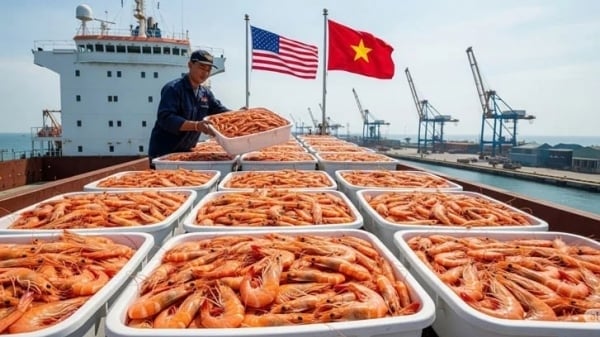
(VAN) Vietnam and the United States are proactively working together, each in their own way, to ensure that every container of agricultural goods carries not just products, but also long-term trust and value.
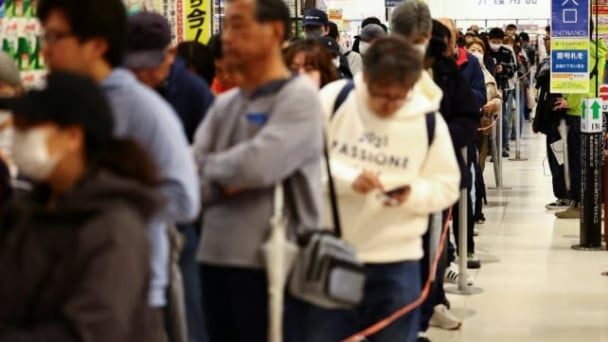
(VAN) Stores have started selling rice from the government’s stockpile to feed demand for the staple.
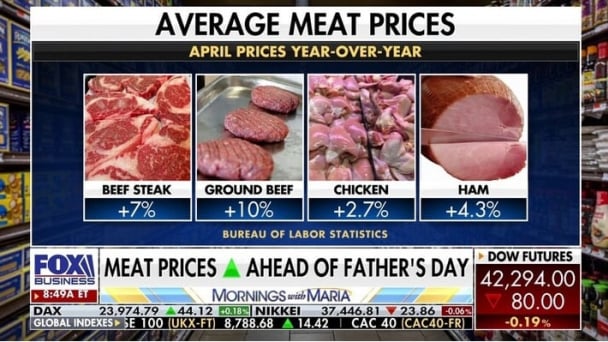
(VAN) Omaha Steaks CEO says rebuilding cattle herds will take about a year to ease price pressures.